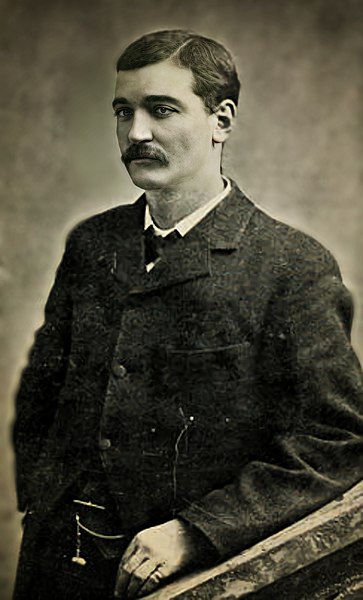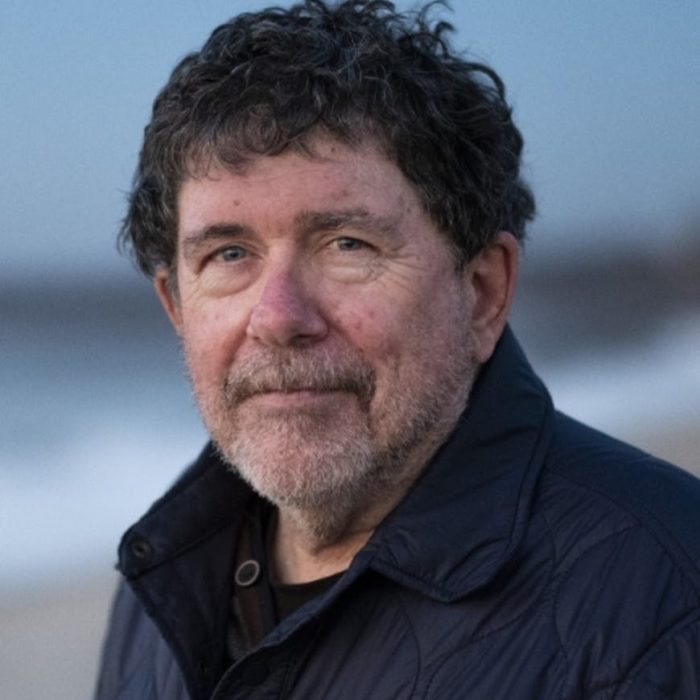dd
dd
by Tom Clavin
There were four lawmen who participated in the legendary Gunfight at the O.K. Corral in October 1881—the town marshal, Virgil Earp, and the three men he had deputized, his brothers Wyatt and Morgan, and Doc Holliday. A fifth could have been Bat Masterson. After all, he was Wyatt Earp’s best friend and he had been in Tombstone earlier that year to side with Wyatt against gambling adversaries. So what happened? It began with a telegram Bat had received in April . . . and ended with the Battle of the Plaza.

The telegram Bat had received, from an anonymous sender, read simply, “Come at once. Updegraff and Peacock are going to kill Jim.” He’d had a quarrel with his brother Jim Masterson, who had become the marshal of Dodge City, and they had not communicated for some time. However, quarrel or no quarrel, being Bat’s brother was sufficient reason for him to undertake a journey of almost a thousand miles to help. He had lost one brother to a bullet in Dodge City just three years earlier to the very month; he did not intend to lose another if it lay within his power to prevent it.
He was further urged to go by Wyatt after the latter was shown the telegram. As Wyatt well knew, aiding a brother in danger topped other considerations. “That was the old frontier’s brand of loyalty,” he later commented.
In truth, Jim Masterson was no longer marshal of Dodge City, a job he’d held for almost 18 months. In the 1881 election in April, “Dog” Kelly and his administration were voted out and the new mayor wanted his own marshal, so Jim had to turn in his badge. But he still had some income, thanks to a partnership with A. J. Peacock in the Lady Gay Saloon and Dance Hall. Lately, though, that hadn’t been going too well. Al Updegraff was the bartender who was drinking up most of the proceeds, but he retained his job because he was Peacock’s brother-in-law. This unprofitable alliance had been festering between Peacock and Jim Masterson for quite a while, but it became more of an issue when the Lady Gay became the ex-marshal’s sole source of income.
As Updegraff continued to imbibe behind the bar, the two partners fought—first with words, then it was reported that guns were drawn. The man who sent the telegram was privy enough to the angry dispute to glean that the next escalation would be the brothers-in-law removing Jim Masterson from the partnership permanently.
Bat feared that no matter how fast he traveled he would not arrive soon enough, yet he gamely pushed on, reversing the course he had taken to Tombstone that past February through Arizona, New Mexico, Colorado, and back to Kansas. It was high noon on April 16 when he stepped off the Atchison, Pacific & Santa Fe train. It turned out that Peacock and Updegraff were indeed gunning for a Masterson—not Jim, but him. Bat saw them approaching the tracks. However, when Bat called out to them, his right hand on the white handle of one of his holstered pistols, the two men turned and ran. The sight of the stocky former Ford County sheriff evaporated whatever mutual courage they had, and they hid behind the city jail.
It has never been determined how the Battle of the Plaza began—all of a sudden, bullets were flying. Several went whizzing past Bat before he realized he was dangerously exposed. He dropped behind the three-foot-high railroad embankment and returned fire with both pistols. Meanwhile, some of the bullets that missed Bat hit shops behind him on Front Street and sent pedestrians and horses fleeing for their lives. Even the interior of saloons was not safe, with customers diving behind bars and under tables.
The battle got even hotter. As the combatants sniped at each other, certain members of Dodge’s sporting fraternity joined in the fray. Behind his rail-capped earthen parapet, Bat was receiving fire from several south-side saloons. At his rear, friendly guns opened up on Front Street. The three principals in the action suddenly found themselves in the middle of a general war raging back and forth across the tracks.
The shooting stopped when Al Updegraff staggered out from behind the jail, a bullet lodged in his chest. As he was dragged off to a doctor, the new mayor, Al Webster, ran up to Bat holding a shotgun. Bat was greatly relieved when told that his brother was fine, and he turned over his now-empty six-shooters to Webster. Updegraff’s wound was not as serious as first believed, and he recovered from it . . . only to die from smallpox two years later.
That afternoon, Bat appeared in court, pleaded guilty to discharging a weapon within the city limits, and paid the $8 fine. Jim ended his partnership with Peacock, and the Masterson brothers, their differences all forgotten after Bat’s rescue mission, left Dodge City together.
Bat would not be returning to Tombstone, which meant one man less on the law-and-order side of the ledger there—and, six months later, one less lawman in a legendary gun battle.
Originally published on Tom Clavin’s The Overlook.

Tom Clavin is a #1 New York Times bestselling author and has worked as a newspaper editor, magazine writer, TV and radio commentator, and a reporter for The New York Times. He has received awards from the Society of Professional Journalists, Marine Corps Heritage Foundation, and National Newspaper Association. His books include the bestselling Frontier Lawmen trilogy—Wild Bill, Dodge City, and Tombstone—and Blood and Treasure with Bob Drury. He lives in Sag Harbor, NY.

